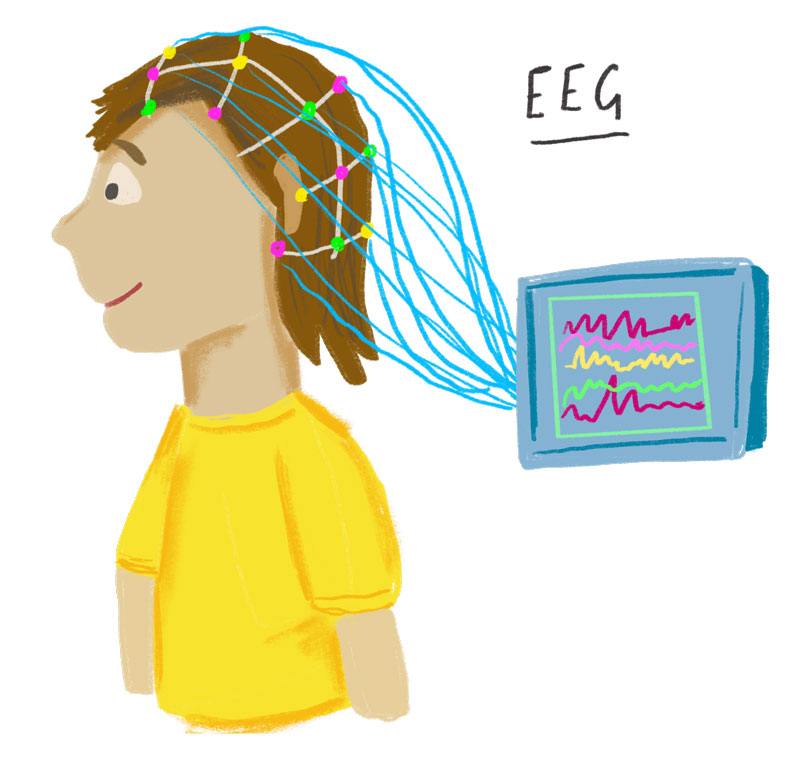Other tests your child might be offered
Hearing tests – audiometry. A hearing test, performed by an audiologist, detects whether hearing loss is due to a bone (conduction) problem or nerve damage, which is caused by pressure from something, such as a tumour near the cochlear nerve (e.g. acoustic neuroma). These are completely painless and last about 30 minutes.
Visual field tests – perimetry. This can be performed by an optician or a neuro-ophthalmologist to detect vision loss and missing areas in your child’s field of vision. It takes little time (20–30 minutes) and is completely painless. Results are usually available immediately.
 EEG – electroencephalography. Our brains are full of electrical activity, and so an EEG records this activity, including the absence of activity and areas of abnormal activity, as seen in epilepsy. The only discomfort your child will feel with this is a bad hair day. The electrodes are attached to their scalp using a sticky gel – this is the longest part of the whole test. The actual test can take anything from 20 minutes to two hours. After the test, the results will need analysing, so this may take a few days.
EEG – electroencephalography. Our brains are full of electrical activity, and so an EEG records this activity, including the absence of activity and areas of abnormal activity, as seen in epilepsy. The only discomfort your child will feel with this is a bad hair day. The electrodes are attached to their scalp using a sticky gel – this is the longest part of the whole test. The actual test can take anything from 20 minutes to two hours. After the test, the results will need analysing, so this may take a few days.
Tip – don’t put gel or hair products on your child’s hair the day they have this done. This may prevent the electrodes from sticking.
Endocrine evaluation – this measures hormone levels in your child’s blood or urine to detect abnormal levels caused by pituitary tumours (e.g. Cushing’s syndrome).
Lumbar puncture – spinal tap. This may be performed to examine cerebrospinal fluid, tumour cells, proteins, infection and blood. This involves placing a needle into the lower back during a procedure that lasts about 20 minutes. There may be some local discomfort, and after the procedure, your child may have a headache, but they should be encouraged to lie flat after the procedure to replace the fluid that has been removed.





